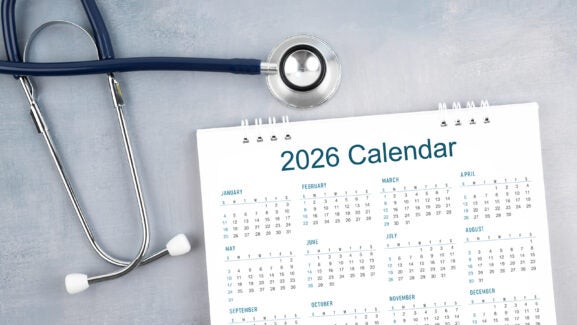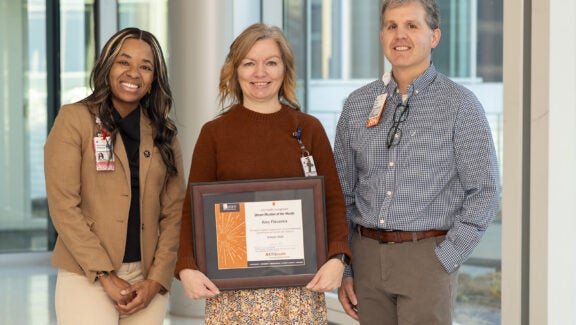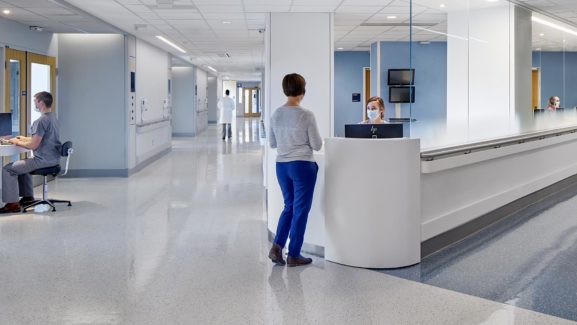
You Can Help End the Stigma
“Mental health conditions are extremely common amongst most communities, and UVA is no exception. On top of this prevalence, COVID has presented many additional challenges for our mental health. I urge all UVA faculty, staff, and team members to take care of your mental health.” — Corey Feist, Chief Executive Officer, UVA Physicians Group
After more than a year of unprecedented stressors brought on by the pandemic, social injustice, and political divisiveness, it is important to reflect on our experiences, acknowledge the emotional toll, and honor our resilience. If you are feeling emotionally drained, exhausted, or overwhelmed, you're not alone. Millions of Americans — including your colleagues, friends, and family — are affected by mental health conditions each year.
Prior to the pandemic, one in five adults were affected by a mental health condition. During COVID-19, the percentage of people reporting anxiety and depressive disorders skyrocketed from 11% to 40% in just one year1. In fact, few of us will get through life without a mental health challenge — up to 80% of us will deal with a mental health condition at least once in our lifetime2.
Statistics from nation-wide surveys indicate that, amongst Americans:
ENDING THE STIGMA
“Many people feel shame about seeking help. The impact of stigma is tragic because mental health challenges are actually very common, and we have good treatments.” — Bethany Teachman, UVA Professor of Psychology
In a recent study, eight out of ten employees across the United States report not seeking help because of fear and shame3. It’s important to know how common mental health conditions are so we can work together to reduce the stigma about mental health and accessing care.
By practicing daily self-care and accessing help when you need it, you are actively caring for your mental health and playing an important role in fighting the stigma.
RESOURCES TO SUPPORT YOU
As a UVA employee, you have many free resources available to support your mental health. FEAP has been an integral, internal resource for UVA’s faculty and staff emotional and mental health needs for over 25 years, and provides free, confidential assessment, brief counseling, referral, and follow-up at no cost for a wide variety of personal concerns. Many UVA employees seek help from FEAP each month. Hear one nurse’s story of how FEAP counseling helped her move past fear and panic.
FEAP and Hoos Well have both expanded program offerings to help you boost your resiliency skills to cope with anxiety, depression, or isolation brought on by COVID-19. Together, they offer free, monthly webinars sharing ways to manage mental health issues like depression, stress, anxiety, and more. Two webinars this month include:
If you miss a webinar, you can access the recordings on demand on FEAP’s previous events page. These Hoos Well webinars are eligible for wellness credits, have broad appeal and have been watched over 6,000 times.
FEAP and Hoos Well have also introduced a number of new support mechanisms based on a hybrid model that blends in-person offerings with access to virtual resources in support of stress management, including free access to eM Life, an online mindfulness platform.
“Taking care of yourself — your own mental health and wellbeing — is so integral to how you feel and function that it may be the single most beneficial thing you can do for yourself, your family, your team and your community.” — Kim Penberthy, Chester F. Carlson Professor of Psychiatry & Neurobehavioral Sciences, UVA
FEAP and Hoos Well encourage you to nurture your psychological health — your emotional, mental, and social well-being. Your mental health affects how you think, feel, and act, and it contributes significantly to how you handle stress, relate to others, and make choices.
To learn more about opportunities to receive support, contact FEAP:
- FEAP website
- FEAP@virginia.edu
- 434.243.2643
Additional UVA resources available to support your mental well-being:
- Wisdom and Wellbeing Program
- Compassionate Care Initiative at the School of Nursing
- Contemplative Sciences Center
- Mindfulness Center at the School of Medicine
References:
- Cuyler, 2021: Employers and Plans Need New Approaches to Treating COVID-Related Panic Attacks
- Schaefer JD, Caspi A, Belsky DW, Harrington H, Houts R, Horwood LJ, Hussong A, Ramrakha S, Poulton R, Moffitt TE. Enduring mental health: Prevalence and prediction. J Abnorm Psychol. 2017 Feb;126(2):212-224.
- National Alliance on Mental Health: Pledge to Be Stigma Free
Latest News




